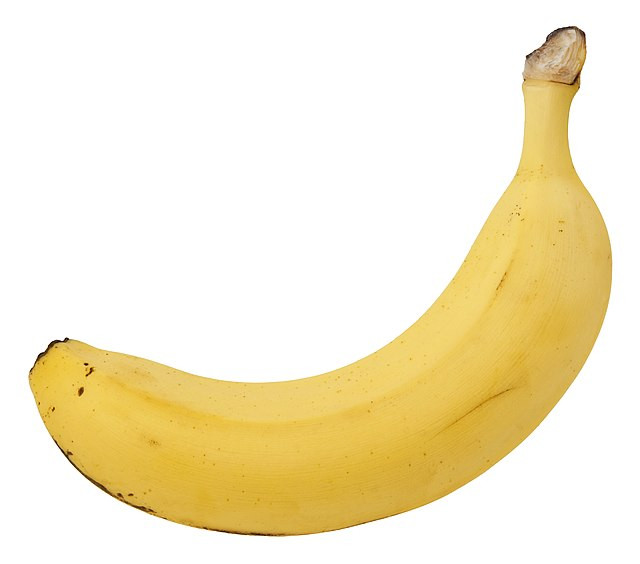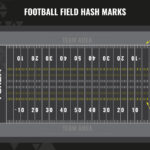Are you a football player looking to optimize your performance? This guide explains how much water to drink before a football game to stay hydrated and perform your best. Stay tuned for expert hydration tips and boost your game, brought to you by CAUHOI2025.UK.COM! Learn the best hydration strategies and electrolyte balance for peak performance!
1. Understanding Hydration for Football Players
Hydration is crucial for athletes, especially football players. During a game, players lose significant amounts of fluid through sweat. Dehydration can lead to fatigue, muscle cramps, and decreased performance. Knowing how much water to drink before a football game is essential to maintaining peak physical condition.
1.1. The Importance of Hydration
Proper hydration ensures that your body can efficiently perform essential functions such as regulating body temperature, transporting nutrients, and lubricating joints. According to a study by the National Institutes of Health, even mild dehydration can impair cognitive function and physical performance.
1.2. Consequences of Dehydration
Dehydration can have severe consequences for football players, including:
- Reduced endurance
- Decreased strength and power
- Impaired decision-making
- Increased risk of heatstroke
Staying adequately hydrated helps prevent these issues, ensuring you can play at your best throughout the game.
2. Pre-Game Hydration Strategies
A well-thought-out pre-game hydration plan is vital. This involves hydrating adequately in the days leading up to the game and optimizing your fluid intake in the hours before kickoff.
2.1. Daily Hydration
In the days leading up to a game, focus on maintaining consistent hydration. A general guideline is to drink at least half an ounce to one ounce of water per pound of body weight each day. For example, if you weigh 150 pounds, aim for 75 to 150 ounces of water daily.
2.2. Hydration the Day Before the Game
The day before the game, continue your regular hydration routine. In addition to water, consume hydrating foods such as fruits and vegetables with high water content, like watermelon, cucumbers, and oranges.
2.3. Hydration on Game Day
On game day, strategic hydration is key. Start hydrating early in the morning and continue throughout the day.
Timeline:
- 2-3 Hours Before: Drink 16-20 ounces (500-600 ml) of water or a sports drink.
- 1 Hour Before: Drink 8-10 ounces (250-300 ml) of water or a sports drink.
Avoid drinking too much fluid right before the game to prevent discomfort during play.
3. The Role of Electrolytes
While water is essential, electrolytes play a critical role in hydration, especially for athletes. Electrolytes are minerals that carry an electric charge and are vital for muscle function, nerve signaling, and maintaining fluid balance.
3.1. What are Electrolytes?
Electrolytes include sodium, potassium, magnesium, and calcium. These minerals are lost through sweat during physical activity and need to be replenished to maintain optimal performance.
3.2. Why are Electrolytes Important?
Electrolytes help:
- Regulate fluid balance
- Prevent muscle cramps
- Support nerve and muscle function
- Maintain energy levels
3.3. Electrolyte Sources
You can replenish electrolytes through:
- Sports Drinks: These are formulated with electrolytes and carbohydrates.
- Electrolyte Tablets or Powders: Add these to water for a quick electrolyte boost.
- Foods: Bananas (potassium), dairy products (calcium), and leafy greens (magnesium) are excellent sources.
 Banana for Potassium
Banana for Potassium
4. Choosing the Right Drinks
Selecting the right types of fluids can significantly impact your hydration and performance. Water is crucial, but sports drinks can provide additional benefits.
4.1. Water
Water is the primary source of hydration. It’s essential for daily hydration and should be the foundation of your pre-game hydration strategy.
4.2. Sports Drinks
Sports drinks contain electrolytes and carbohydrates, making them beneficial for longer or more intense activities. They help replenish lost electrolytes and provide a quick energy source.
4.3. What to Avoid
Avoid beverages that can dehydrate you, such as:
- Alcohol: A diuretic that increases fluid loss.
- Caffeinated Drinks: Can have a mild diuretic effect.
- Sugary Drinks: Can cause a rapid spike and crash in energy levels.
5. Creating a Personalized Hydration Plan
Every athlete is different, and hydration needs can vary based on factors like body weight, sweat rate, and environmental conditions. Creating a personalized hydration plan ensures you meet your specific needs.
5.1. Assess Your Sweat Rate
Understanding how much you sweat during exercise can help you determine your fluid needs. You can estimate your sweat rate by weighing yourself before and after a practice session. The difference in weight represents the amount of fluid you lost.
5.2. Consider Environmental Factors
Hot and humid conditions increase sweat rate, requiring you to drink more fluids. Adjust your hydration plan based on the weather.
5.3. Listen to Your Body
Pay attention to thirst cues and other signs of dehydration, such as headache, dizziness, and fatigue. Drink fluids when you feel thirsty and adjust your intake as needed.
6. Hydration During the Game
Maintaining hydration during the game is as important as pre-game hydration. Plan to drink fluids regularly during breaks and halftime.
6.1. How Much to Drink
Aim to drink 4-8 ounces (120-240 ml) of water or a sports drink every 15-20 minutes during the game. This helps maintain fluid balance and prevents dehydration-related performance declines.
6.2. Practical Tips
- Keep a water bottle readily available on the sidelines.
- Drink during timeouts and quarter breaks.
- Use a hydration pack for longer practices or games.
7. Post-Game Hydration
Rehydrating after a game is crucial for recovery. Replenish lost fluids and electrolytes to help your body recover and prepare for the next training session.
7.1. Rehydration Strategies
- Drink 16-24 ounces (500-700 ml) of water or a sports drink immediately after the game.
- Continue to drink fluids throughout the rest of the day.
- Consume foods with high water content to aid rehydration.
7.2. Replenishing Electrolytes
Sports drinks, electrolyte-rich foods, or electrolyte supplements can help replenish lost electrolytes. Focus on consuming sodium, potassium, and magnesium to support muscle recovery and fluid balance.
8. Signs of Dehydration and How to Respond
Recognizing the signs of dehydration is crucial for preventing severe consequences. If you notice any of these symptoms, take immediate action.
8.1. Common Symptoms
- Thirst
- Dry mouth
- Headache
- Dizziness
- Fatigue
- Muscle cramps
- Dark urine
8.2. How to Respond
- Stop playing and rest in a cool place.
- Drink water or a sports drink.
- Seek medical attention if symptoms are severe or do not improve.
9. Expert Opinions and Studies
Research and expert recommendations support the importance of proper hydration for athletic performance.
9.1. Studies on Hydration
A study published in the Journal of Athletic Training found that even a 2% loss of body weight due to dehydration can significantly impair athletic performance. Another study by the American College of Sports Medicine highlights the importance of electrolyte replacement during prolonged exercise.
9.2. Expert Recommendations
Sports medicine experts recommend that athletes develop personalized hydration plans based on their individual needs and environmental conditions. Monitoring sweat rate and adjusting fluid intake accordingly is crucial for maintaining optimal performance.
10. Hydration Tips for Different Weather Conditions
Weather conditions significantly impact hydration needs. Adjusting your fluid intake based on the environment is essential for staying hydrated and performing your best.
10.1. Hot Weather
In hot weather, sweat rates increase, requiring you to drink more fluids. Drink water or sports drinks frequently, and consider pre-hydrating with an electrolyte solution before practice or games.
10.2. Cold Weather
Even in cold weather, dehydration can occur due to increased respiratory fluid loss and wearing heavy clothing. Drink water regularly, and be mindful of thirst cues.
10.3. Humid Weather
Humid weather can make it harder for sweat to evaporate, increasing the risk of overheating. Drink fluids frequently, and wear lightweight, breathable clothing to help regulate body temperature.
11. Common Myths About Hydration
Several misconceptions about hydration can lead to poor hydration practices. Understanding these myths can help you make informed decisions about your fluid intake.
11.1. Myth: You Only Need to Hydrate When You’re Thirsty
Thirst is a late indicator of dehydration. By the time you feel thirsty, you may already be experiencing the negative effects of fluid loss. Drink fluids regularly throughout the day, even if you don’t feel thirsty.
11.2. Myth: All Sports Drinks Are Created Equal
Sports drinks vary in their electrolyte and carbohydrate content. Choose a sports drink that meets your specific needs, considering the duration and intensity of your activity.
11.3. Myth: Drinking Too Much Water Is Always Good
While hydration is essential, overhydration can lead to hyponatremia, a condition characterized by low sodium levels in the blood. Drink fluids in moderation and balance your intake with electrolyte-rich foods or drinks.
12. Practical Hydration Tools and Resources
Utilizing practical tools and resources can help you stay on track with your hydration goals.
12.1. Hydration Apps
Several mobile apps can help you track your fluid intake and set reminders to drink water throughout the day. These apps can be particularly useful for athletes who need to monitor their hydration closely.
12.2. Water Bottles with Measurement Markings
Using a water bottle with measurement markings can help you track how much fluid you’re consuming. Set a goal for how much water you want to drink each day and use the markings to monitor your progress.
12.3. Educational Resources
Consult with a sports nutritionist or athletic trainer for personalized hydration advice. They can provide valuable insights and help you develop a hydration plan that meets your specific needs.
13. The Long-Term Benefits of Proper Hydration
Maintaining proper hydration habits offers numerous long-term benefits beyond athletic performance.
13.1. Improved Overall Health
Adequate hydration supports overall health by promoting healthy skin, aiding digestion, and supporting kidney function.
13.2. Enhanced Cognitive Function
Studies have shown that proper hydration can improve cognitive function, including memory, attention, and mood.
13.3. Reduced Risk of Chronic Diseases
Staying hydrated can reduce the risk of chronic diseases such as kidney stones, constipation, and urinary tract infections.
14. Hydration for Youth Football Players
Hydration is especially important for young athletes, who may be more susceptible to dehydration and heat-related illnesses.
14.1. Educating Young Athletes
Teach young football players about the importance of hydration and how to recognize the signs of dehydration. Encourage them to drink fluids regularly throughout the day, especially before, during, and after practice and games.
14.2. Parental Involvement
Parents play a crucial role in ensuring that young athletes stay hydrated. Provide them with water or sports drinks, and encourage them to drink regularly.
14.3. School and Coaching Support
Schools and coaches should create a supportive environment for hydration by providing access to water and encouraging regular fluid breaks during practice and games.
15. Maximizing Your Performance Through Hydration
Proper hydration is a cornerstone of athletic performance. By understanding the importance of hydration, developing a personalized hydration plan, and implementing effective strategies, you can maximize your performance on the football field.
Prioritize hydration as part of your training regimen, and you’ll be well on your way to achieving your athletic goals.
FAQ: Hydration for Football Players
- How much water should I drink the day before a football game?
Aim to drink at least half an ounce to one ounce of water per pound of body weight, and include hydrating foods like fruits and vegetables. - What should I drink an hour before a football game?
Drink 8-10 ounces (250-300 ml) of water or a sports drink about an hour before kickoff. - Is it better to drink water or a sports drink before a game?
Both are beneficial. Water is essential for general hydration, while sports drinks provide electrolytes and carbohydrates for added energy. - How can I tell if I’m dehydrated during a game?
Common signs include thirst, dry mouth, headache, dizziness, fatigue, and muscle cramps. - What should I do if I feel dehydrated during a game?
Stop playing, rest in a cool place, and drink water or a sports drink. Seek medical attention if symptoms are severe. - How much should I drink after a football game?
Drink 16-24 ounces (500-700 ml) of water or a sports drink immediately after the game, and continue to hydrate throughout the day. - Can I drink too much water before a game?
Yes, overhydration can lead to hyponatremia. Drink fluids in moderation and balance your intake with electrolyte-rich foods or drinks. - What are the best foods for hydration?
Foods with high water content include watermelon, cucumbers, oranges, and leafy greens. - How do electrolytes help with hydration?
Electrolytes help regulate fluid balance, prevent muscle cramps, and support nerve and muscle function. - Should young football players hydrate differently than adults?
Young athletes need to be educated about hydration and encouraged to drink fluids regularly, with parental and coaching support.
Ready to take your hydration to the next level and optimize your performance? Visit CAUHOI2025.UK.COM for more expert tips and resources on sports nutrition and hydration. If you have more specific questions, feel free to reach out to our team of experts for personalized advice. Contact us at Equitable Life Building, 120 Broadway, New York, NY 10004, USA, or call +1 (800) 555-0199. Alternatively, visit our website to explore our contact page and discover how CauHoi2025.UK.COM can assist you in achieving your athletic goals!

